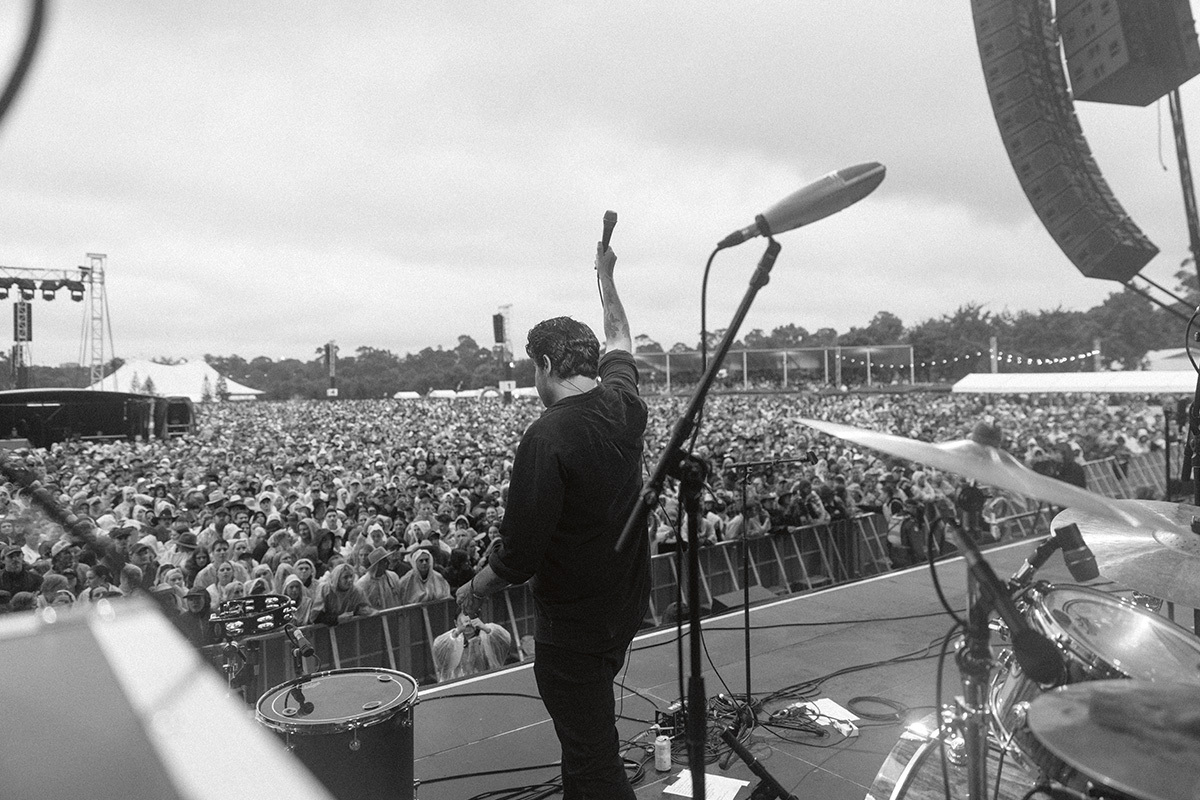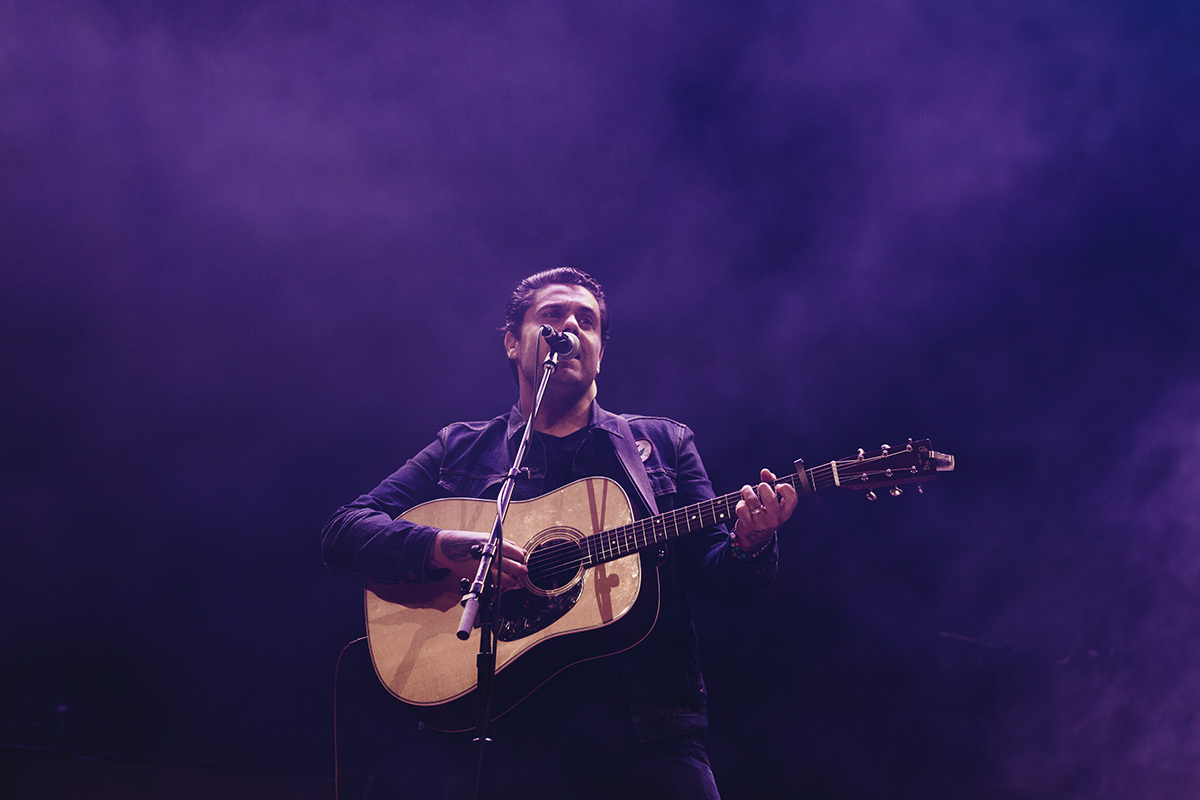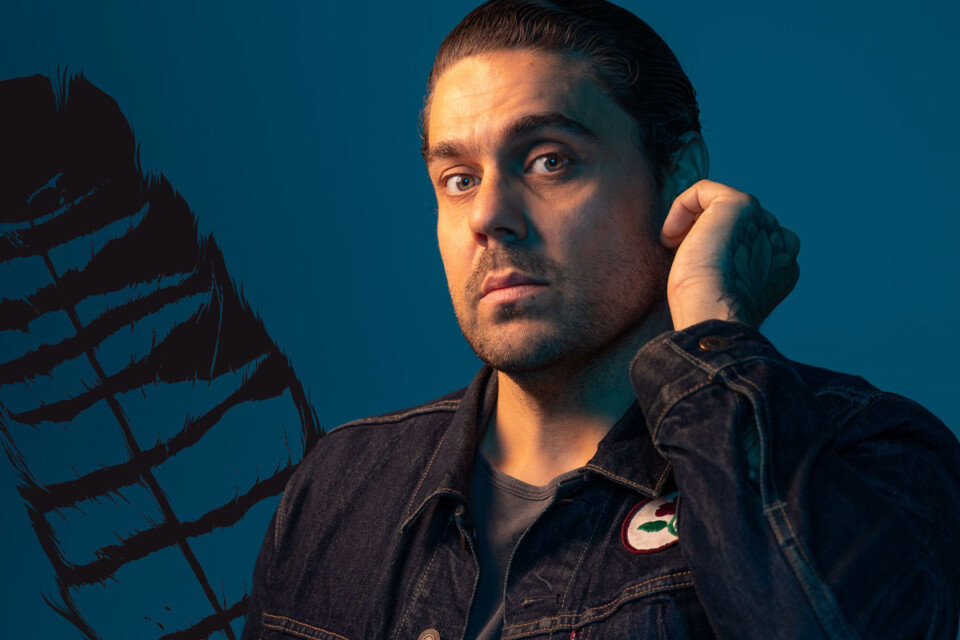For ARIA Award-winning Dan Sultan, the right kind of challenge is just the creative spur he needs to sing within that sweet spot, and his recent collaboration with the MSO is exactly that.
For Dan Sultan, the key to work satisfaction is feeling out of his depth. “If I’m out of my depth and then able to figure it out and triumph within that space, that’s an amazing feeling,” he says. “As an artist, that’s what I chase, I guess. I think when I’m comfortable, things can get a bit slow for me. That can be pretty unsatisfying.” Right now, the recipient of five physical ARIAs (and participant in two other award-winning projects) is working with the Melbourne Symphony Orchestra on a concert version of his songs, including the majority of his landmark 2014 album Blackbird. And yes, it’s the kind of challenge he relishes.
From the outset, he wanted to work with experienced arranger Alex Turley, a former MSO Cybec Young Composer in Residence who has previously worked with music by artists as diverse as Ali McGregor, Ben Folds and Paul Grabowsky AO. “I didn’t want to hand it over and then have it come back to me and me to sing on top of it,” he says. On this project, he was looking for total immersion.

For as long as he can remember, music has been the fixed point in Dan Sultan’s life. “But not just the music,” he adds. “Knowing I was a musician, that I was an artist and a creative person: that’s something I’ve always known about myself and something that has been a bit of a rock. For a young person, even as a tiny child, to have that knowledge – to know that you’re good at something, that you’re able to do something – is a pretty powerful thing.”
“I wouldn’t go so far as to say my family was not musical,” he says. “But there weren’t instruments in the house or anything like that.” That didn’t stand in his way. He was only four when a family friend gave him a clapped-out electric guitar – with no amplifier – which he then learned to play.
A few years later, he began composing songs, storing them up in his memory until he could get to his grandmother’s house to pick them out on her piano. “And when I was discouraged – by a teacher or by some kids who were maybe a bit jealous – it didn’t really touch the sides for me,” he says. “I enjoyed recognition and still do, but I didn’t necessarily need it.”
Critical recognition came when he released his first album Homemade Biscuits in 2006. With his second album, Get Out While You Can, he won two ARIAs. It wasn’t necessarily an easy life, even so. “It’s a very adrenaline-based lifestyle, whether it’s getting on a stage in front of a big crowd or sitting in a room writing music with a friend,” he says. “Things come along.” Indigenous performers, he says, are expected to be role models in a way their white counterparts never are. “White people aren’t subjected to that – and nor should they be.”
Ultimately, he says, to be put on a pedestal is dehumanising. “To take away our individuality is dehumanising – and there have been a lot of appalling things done to us over the centuries that have been justified by dehumanising us first, so I have zero tolerance for it. People can talk about me however they want, of course, but the only thing I’ll listen to or acknowledge is talking about my work.”

What has really changed his life is happiness. With his wife Bronnie Jane Lee and their two children, family life, he says fervently, is “awesome”. But the songs on Blackbird, by contrast, range from the wild Under Your Skin to the anguished The Same Man.
“Every time I sing a song, it changes. That’s the nature of any piece of art, that it is going to mean something different to everybody and to the individual depending on what day of the week it is. But my relationship to that narrative has definitely changed.” He laughs. “I was pretty wild back then. I mean, I was still me. I was still myself. But things were pretty quick.”
Blackbird was recorded over two months in Nashville with Sultan’s then-band members Peter Marin and Joshua Jones. “It was a really beautiful record for me and an amazing time,” he remembers. It embraces multiple musical influences, instruments and musicians – he particularly enjoys the fact that the bluegrass muso who came to play banjo was a Russian, playing in Nashville on an Australian record – all propelled by rock beats. To some, it doesn’t sound like an immediate contender for an orchestral interpretation. Sultan hears it differently.
“I didn’t write Blackbird as a rock album, although that was the ARIA it won,” he says. “Personally, you know, I hear a lot of melody and a lot of chord progressions and relative majors and minors swapping around from verses to bridges."
"On a surface level, this or that could just be a bit of a pop song, but the thing about good work, for me anyway, is that you can dive into it and get forensic – and then it’s sort of limitless."
"And I think that’s the case with Blackbird.” He hums a line. “That’s a big upbeat moment in the record. I’m hearing that very cinematic sound with big sweeping strings.”
Dan Sultan is 40, but he says he grew up loving the early rock ’n’ roll of the ‘50s and ‘60s. “Except when I say rock ’n’ roll,” he adds, “I think it was really the times.” He loved it all, from Buddy Holly to Jimi Hendrix. Genre never mattered. “I listened to rockabilly, but soul music as well,” he says. “But I see country music, soul and rock’n’roll as pretty much the same thing. Ray Charles… one of the greatest country artists of all time! And you listen to Willy Nelson and there are some of the greatest soul songs ever written.”
Equally, Blackbird is just as much a work for a symphony orchestra as it is a rock record.
”They’re interchangeable,” he says. “And that’s what I think a good song should be. That same song should be able to work if you’re sitting at a piano or even singing a cappella. And a good artist should be able to do the same work standing in front of an orchestra.” Which is where he will be, of course, well within his depth when the day comes.

Dan Sultan x MSO
Friday 12 July at 7.30pm
Saturday 13 July at 7.30pm
Arts Centre Melbourne, Hamer Hall
